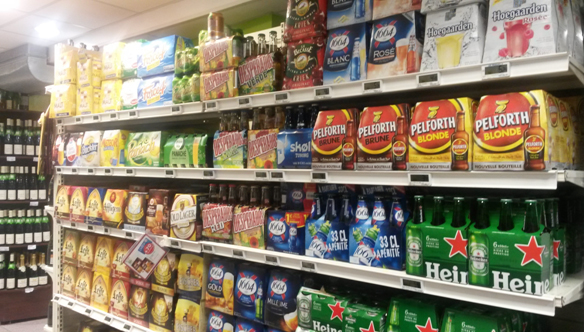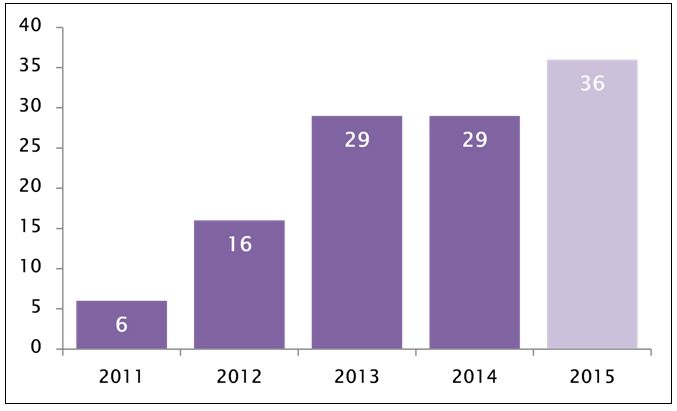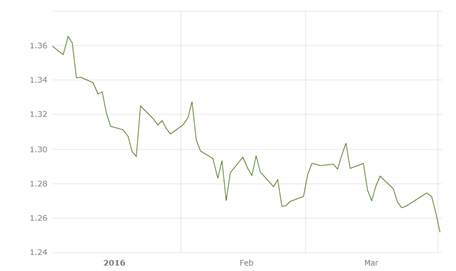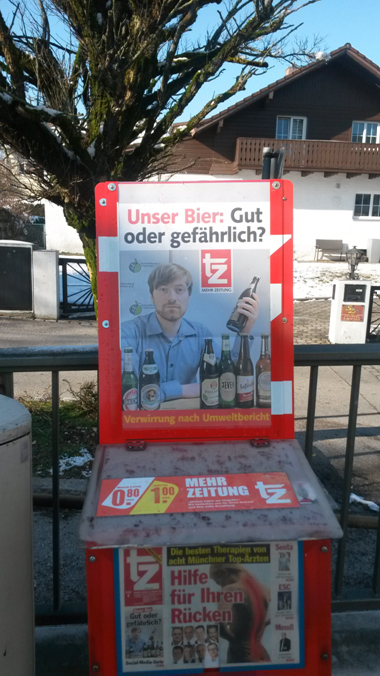Imitate or innovate? In an attempt to bring more customers through its bar doors, the Scottish punk brewer BrewDog has bought a 33 percent stake in the Edinburgh company Third Wave Coffee, UK media reported on 6 April 2016.
When did we last hear of beer being reassuringly expensive? It was actually Stella Artois’ advertising slogan in the UK from 1982 until 2007. During 2007, the “reassuringly expensive” slogan was dropped by AB-InBev, possibly as a reaction to the lager’s perceived connection with lager louts and binge-drinking, which gave it the nickname "wife beater".
Seems like tax avoidance is becoming something of an issue in Belgium. Following the Panama Papers scandal, which broke on 3 April 2016, Belgian media reported that the names of 732 Belgians were found on financial documents which have leaked from the Panamanian law firm Mossack Fonseca.
Last summer, the southern Danish brewery Bryggeriet S. C. Fuglsang A/S and malting Sophus Fuglsang Export-Maltfabrik A/S celebrated their anniversary at a reception with both local and international flair. The guests were offered anniversary beer named “150” and a look inside a newly restored building for administration and canteen. Both companies are managed by some of the founder’s great-great grandchildren.
With the referendum on Britain’s membership of the EU to take place on 23 June 2016, investors in SABMiller will soon have to make up their minds which offer to accept: AB-InBev divided its GBP 71 billion (USD 110 billion) bid for SABMiller into two formats. Investors could either take GBP 44 in cash for each SABMiller share or they could receive a mix of cash and AB-InBev shares worth GBP 41.85 at the time of the announcement.
Perhaps if Carlsberg had invited analysts to its Easter special pop-up chocolate pub in London, in which everything from the dartboard to the bar stools was made from actual, edible chocolate – the beer taps were real though –, the money guys would have been put into a sweeter frame of mind.
Who would have thought that the British beer revolution would catapult the Campaign for Real Ale (CAMRA) into something akin to soul searching?
The UK’s 2016 budget is a mixed bag. While the Chancellor George Osborne decided to freeze duty on beer, cider and whisky, he announced a tax on sugar-sweetened beverages during his speech on 16 March 2016. Under the plan, by 2018, sugary drinks will be taxed on the amount of sugar they contain, with some exemptions for fruit juice and milk.
You cannot fault them for taking advantage of easy money. Ever since the European Central Bank announced in March 2016 that it will start buying corporate debt later this year – despite there being few details for the plan –, companies have flocked to Europe’s corporate bond markets. This would mean lower borrowing costs for European companies
You cannot fault them for their perfect timing. On 25 February 2016, when the German parliament was to cast a vote on whether to extend approval for the use of glyphosate, the world’s most widely used weed killer, media screamed that a Munich environmental institute had found traces of the pesticide in 14 of Germany’s most popular beers. All the same, parliament voted in favour of the extension.





